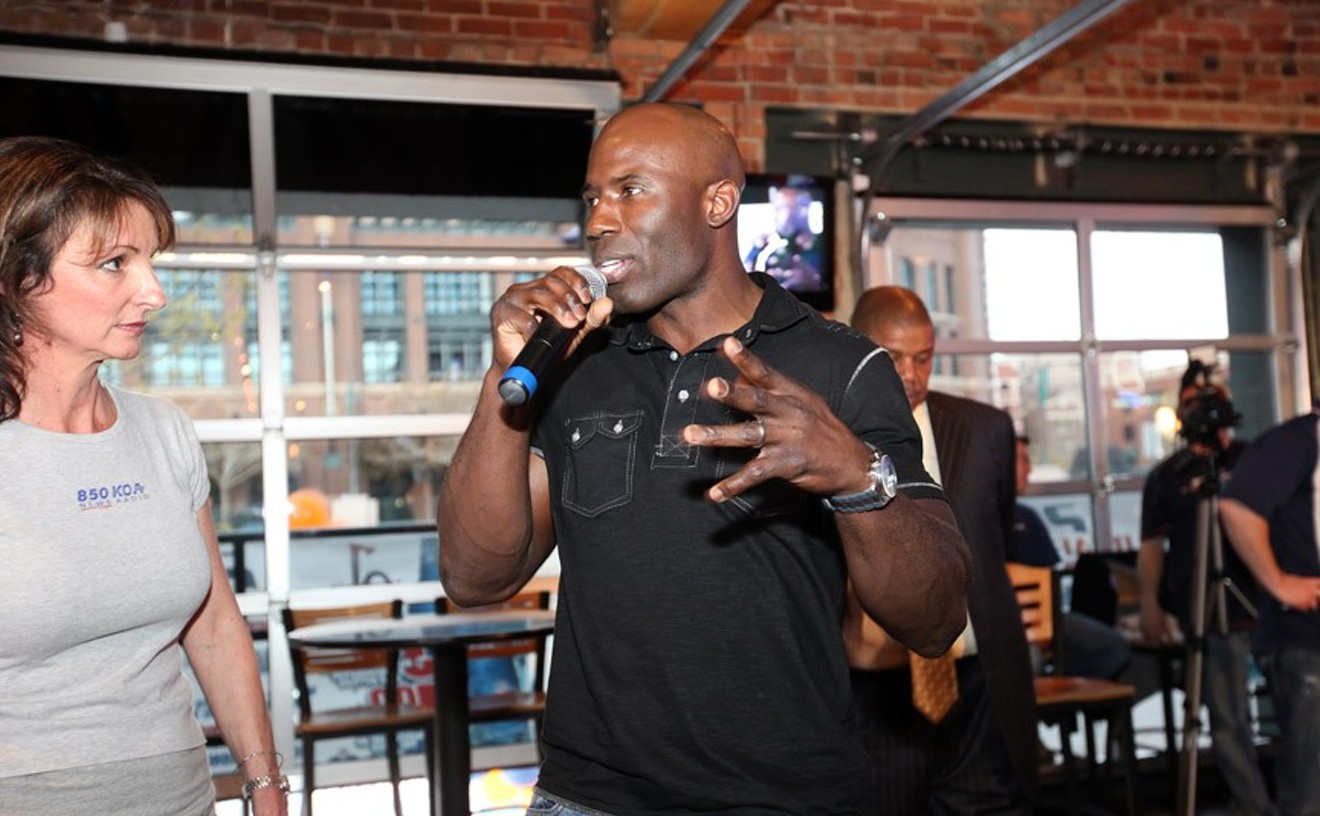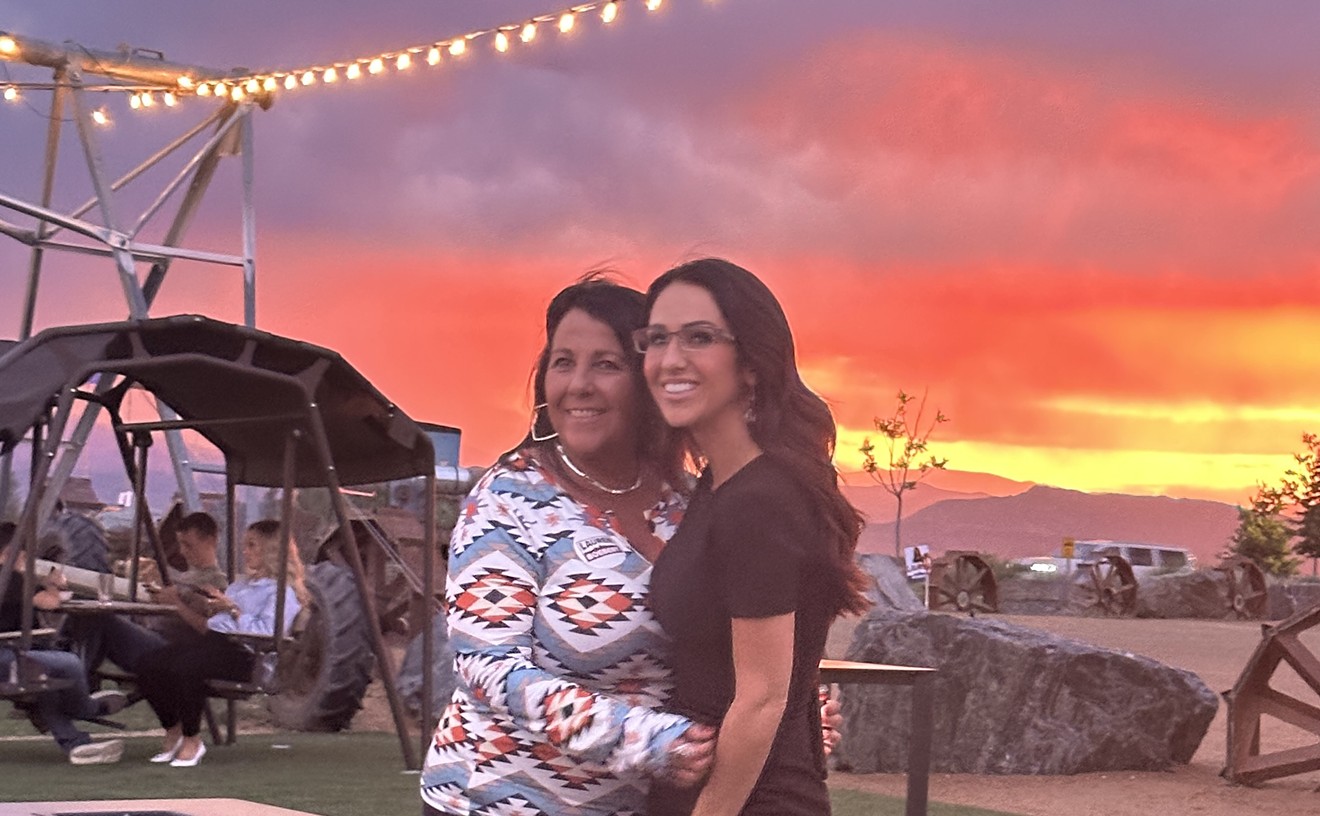The way things stand now, obtaining open records from a government agency in Colorado and then going after said government agency if you feel as though you've been wrongly denied those records is tough.
Jeffrey A. Roberts puts it more bluntly: "Litigate or give up."
That's how Roberts, executive director of the Colorado Freedom of Information Coalition, started a recent blog post about resolving open-government disputes.
While all states have some sort of a process for residents to obtain public records — Colorado's is the CORA, or Colorado Open Records Act — the Centennial State is one of about 25 that doesn't have a process for its residents to appeal a denied open-records request that doesn't involve litigation. And since not everyone has the money to take the government to court (you may have heard that newspapers are hurting financially, yes?), most people give up on the record they're trying to obtain. And that's bad news for everyone. Less information — information taxpayers are absolutely entitled to — opens up the possibility for more corruption.
"It can be a very frustrating for journalists and the public knowing that there's not another way to make this happen," Roberts says.
But this conundrum presented an opportunity.
Roberts is a member of a CORA working group created last year to resolve issues with electronic public records. There is no definitive language in the CORA law that requires government agencies to hand databases over in their original format. So records with hundreds or thousands or millions of pieces of information aren't necessarily sent in a searchable way. (Rocky Mountain PBS journalist Katie Wilcox got 1,151 pages of printed information from the City of Aurora for a story she was working on.) A bill that tried to address the unclear language died last year, but from the ashes arose the working group.
Along with the database issue, the working group decided to take on another issue: the alternative dispute resolution (ADR for short) process, or basically what happens when the public is denied an open-records request and then tries to appeal the decision.
The group asked Matthew Aeschbacher, a then-University of Denver law-school student, to investigate states with ADR processes in place to start a conversation in Colorado about creating our own ADR process...or copying someone else's. ("We're not endorsing any particular way at this point because we just haven't discussed it enough to figure out the pros and cons in what we think would be the best idea," Roberts says.)
Aeschbacher found that successful ADR processes have a few things in common. First, they exercise a certain amount of independence; whoever takes on the ADR process shouldn't answer to the executive branch. Second, the committee (or agency, or whatever it may be) is made up of a variety of stakeholders, including representatives from local government and the media. Third, the board/committee/agency has enforcement capabilities; for example, Connecticut's open-records administrative agency is allowed to enforce any decisions it makes regarding an open-records decision. And finally, states with successful ADR processes take a progressive approach, like implementing a sliding scale for dispute-resolution methods.
Roberts says the working group hopes to create a solution before the next legislative session. Then starts the fun part.
"I think...to have a completely different, new agency" created to take on the ADR process "is something that costs money, and anything that adds to government in Colorado is going to raise some eyebrows if there's a big cost to it," Roberts says.
Read Aeschbacher's report here.
[
{
"name": "Air - MediumRectangle - Inline Content - Mobile Display Size",
"component": "12017618",
"insertPoint": "2",
"requiredCountToDisplay": "2",
"watchElement": ".fdn-content-body",
"astAdList": [
{
"adType": "rectangle",
"displayTargets": "mobile"
}
]
},{
"name": "Editor Picks",
"component": "17242653",
"insertPoint": "4",
"requiredCountToDisplay": "1",
"watchElement": ".fdn-content-body",
"astAdList": [
{
"adType": "rectangle",
"displayTargets": "desktop|tablet"
},{
"adType": "rectangle",
"displayTargets": "desktop|tablet|mobile"
}
]
},{
"name": "Inline Links",
"component": "18838239",
"insertPoint": "8th",
"startingPoint": 8,
"requiredCountToDisplay": "7",
"maxInsertions": 25
},{
"name": "Air - MediumRectangle - Combo - Inline Content",
"component": "17261320",
"insertPoint": "8th",
"startingPoint": 8,
"requiredCountToDisplay": "7",
"maxInsertions": 25,
"watchElement": ".fdn-content-body",
"astAdList": [
{
"adType": "rectangle",
"displayTargets": "desktop|tablet"
},{
"adType": "rectangle",
"displayTargets": "desktop|tablet|mobile"
}
]
},{
"name": "Inline Links",
"component": "18838239",
"insertPoint": "8th",
"startingPoint": 12,
"requiredCountToDisplay": "11",
"maxInsertions": 25
},{
"name": "Air - Leaderboard Tower - Combo - Inline Content",
"component": "17261321",
"insertPoint": "8th",
"startingPoint": 12,
"requiredCountToDisplay": "11",
"maxInsertions": 25,
"watchElement": ".fdn-content-body",
"astAdList": [
{
"adType": "leaderboardInlineContent",
"displayTargets": "desktop|tablet"
},{
"adType": "tower",
"displayTargets": "mobile"
}
]
}
]











